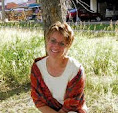Historical thinking at its best
I seem to be on a kick of reading books about World War II and the Holocaust at the moment. I love reading about history but I don’t typically read a lot about the Holocaust specifically. Too disturbing and I’m a wuss.
This book is written in narrative verse. Each chapter is centered on a page taken from her mother’s posiealbum (similar to an autograph book with poems) with the thoughtful inscriptions from her friends the basis for describing what life was like for Jutta before immigrating to the United States. There are the usual concerns of a twelve-year-old girl (family, friends, school). We are given glimpses into the confusing world that the Nazis had created where neighbours and friends disappeared, plus the many restrictions about going to school, where to shop or work, in addition to having many political rights taken away. The narrative captures the perplexity, fear and resentment that Jutta experiences. There is tenseness and terseness that is palpable as the family copes with everyday trials and as they attempt to leave Hamburg.
An extensive afterward outlines the events chronologically and what happened to Jutta and her family once they arrive in the United States. Additional research by the author tracked down what happened to many of Jutta’s friends, many of them not surviving the war.
I found this book very engaging and that I cared very much about young Jutta. The author may have used a fictional voice to tell her mother’s story but it rang true as if this was Jutta herself. I felt the ‘facts’ had been fairly represented. Compare this to a book I reviewed a couple of weeks ago (Brave deeds: how one family saved many from the Nazis by Ann Alma) where the author also uses a fictional voice to narrate at true story.
I recommend A Year of goodbyes for middle grades (5-8) and think it’s appropriate for students who might not be ready for more graphic Holocaust literature.
Today's Nonfiction Monday event is being hosted at the Jean Little Library site. Stop by and see what other blogs are recommending for nonfiction children's literature.















2 comments:
I have to admit I haven't read much literature on the Holocaust, but I'm definitely interested...especially since I was recently in Berlin, where I saw its Holocaust Memorial, stood on top of Hitler's old bunker, and even visited a concentration camp. This book sounds like it would be a great one for any child (or adult) interested in learning more about what it was like to live during this tumultuous time. Thanks for sharing...
Thanks for stopping by, Kerry.
I, too, had the opportunity to visit a concentration camp, Auschwitz, with I was still in high school and it definitely left an impression. Maybe that's where my reluctance comes from. I appreciate your interest.
Tammy
Post a Comment